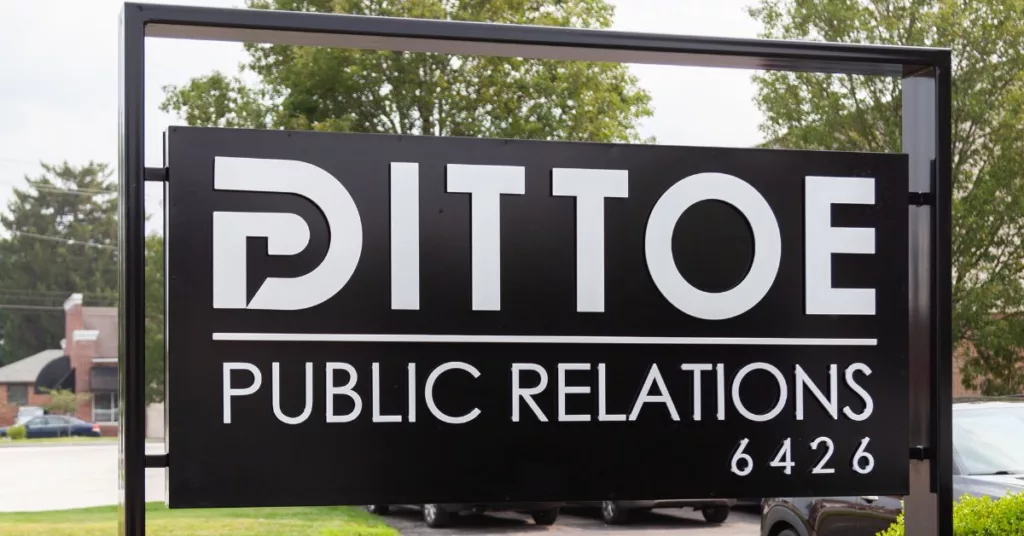This month, Dittoe PR celebrates 20 years in business! All month long, we’re celebrating our anniversary by sharing content dedicated to the big 2-0. For our final blog post of this series, we’re looking ahead at the coming years and making predictions on how things will evolve.
As we mentioned in last week’s blog post, the PR industry has changed so much in the past 20 years. Can you believe we used to fax our pitches to reporters? Our Gen Z employees definitely can’t. Twenty years ago I was in second grade, getting in trouble for talking too much, and today I’m working for one of the top PR firms in Indianapolis earning a living by telling stories.
Looking ahead at the future of PR can be challenging, given how fast-paced it is. But rather than peering into a crystal ball, we can form predictions based on rational extensions of the current industry.
More integration between PR and marketing.
One thing is for sure, the storytelling aspect of public relations isn’t going anywhere, but writing press releases alone won’t cut it anymore. As PR aligns further with the overall marketing goals of a company, it’s going to become less about content creation and more about content marketing.
Delivering information that resonates with audiences in real time is key to proving/defining/illustrating PR’s return on investment (ROI). Marketing leaders want to know that the money spent on content distribution is having an impact. As the gap between marketing and PR shrinks, data continues to rule.
Data-driven, analytics overload.
Not only will PR pros depend on data more than ever before, but it’s also very possible that PR firms and agencies will begin employing their very own data scientists. Between SEO, PPC, ROI and a whole host of other acronyms being thrown around in the marketing world, it makes sense to have a full-time team member (or five) dedicated to analyzing data and reporting on trends.
This evolution of PR will help pros better align their outreach efforts with key target audiences and understand data-forecasting in new ways. Leveraging data will also help fine-tune strategic planning, reflect on the effectiveness of campaigns, and discover opportunities centered around the levels of engagement.
A focus on branding.
Branding has been around in the corporate world for a while, but recently we’ve begun to see a shift towards ordinary people branding themselves as experts. Thanks to influencer marketing, consumers are more likely to make purchasing decisions based on the advice of who they follow on Instagram rather than seeing a company’s advertisement.
Over the next few years, we predict that more writers will follow the lead of Instagram influencers and create their own “brands” online, allowing them to become recognizable as industry experts and deliver information to audience members directly. The focus will be less on the outlet publishing the story and more on the writers themselves.
Further evolution of the trade industry.
The transition from print to online publications redefined what people consider “trusted news,” and that evolution continues today. People no longer sit down to read the morning paper, but when readers find the time to search for information on a certain topic, they go directly to a source that can provide all the information they need in as few clicks as possible.
More trade publications, writers and niche beats will emerge, and consumers will rely on these experts to keep them informed of what’s going on in the world. As PR pros, it will be our job to ensure that company leaders are among the top experts recognized in their industries through thought-leadership, expert interviews, engaging blog content, and more.
A more personalized social media.
What’s the one way to tie data, branding and industry-specific information together in an easily digestible and visually engaging package? You guessed it: social media.
But it’s not just about posting – it’s about engagement. The “E” word is no longer just reporting on likes and link clicks, it’s about starting and participating in conversations. The sooner we stop treating social media as a sales tool and start thinking about it more as an engagement tool, the data will reflect the profitable difference.
We expect that business leaders (and writers pursuing their own brands) will become just as active on social media than the companies they’re leading or publications they’re working for, if not more so. And the content they’re publishing will become more focused on creating a two-way conversation about the industry and explaining why their role in it matters.
All in all, we expect the industry to grow and evolve in the coming years. As a company dedicated to staying ahead of the curve, Dittoe PR is looking forward to seeing where the future takes us!







0 Comments